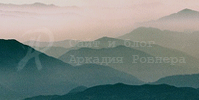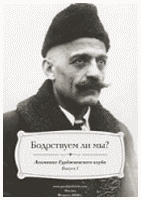DORINE VAN OYEN – ROMEO AND JULIET
“That which is above is like that which is below”, said Hermes Trismegistos, the visionary from Atlantis, who came to Egypt thousands of years before Christ.
“Man is a microcosmos”, Ouspensky said; a minimachine in the macromachine of creation. He is connected with it as if by a plug in a power point. The energy supply of the universe is his nutritional source. The Milky Way consists of 50,000 million stars and the human brain of about as many cells. But do we actually feel that we are the image of this gigantic machine, do we notice anything of those universal powers apparently flowing in us?
The analogy can be pursued further to the machines made by man himself, – not surprisingly ‘made in his own image’-. We hear about telephones and computers that will soon operate entirely wireless, so that cables will not be needed anymore. What remains necessary is this nutritional source supplying energy, the plug in the socket.
The power point for us as individuals is the source of all consciousness, the creative point of creation. Without this power supply nothing can be brought to life, grow and dissolve. If we unplug the plug, life discontinues.
Let us investigate further. The above does not mean to say that by merely having the plug in the universal socket, we will blossom and flourish just like that. As with wireless telephones, the right number needs to be dialled for making contact.
Maurice Nicoll said the following:
“Each cell of the human brain has a tiny thinking point, and each cell is connected to three or four other brain cells. We use only a small part of our brain. All our mechanical associations come about because of bad connections between cells. If all of our millions of cells would be connected properly, we would experience higher consciousness and rise to the level of consciousness of the sun.”
So, communication comes about by dialling the ‘right number’. The sound waves will then connect through the ether without any additional help. This then is a connected state. This state is what we call attention. And this attention goes very far; it may extend itself to the entire universe, with which we can then have ‘wireless’ communication. Eventually, this will open the way to a higher state of consciousness, as described by Gurdjieff and Ouspensky in many ways. The highest state – called enlightenment, unity, ecstasy, nirvana or cosmic consciousness by various esoteric schools of thought – occurs when that consciousness, which flows through our veins, becomes real food, is really tasted.
Without attention, then, the individual cannot taste this freely available consciousness.
It is like the lover and his beloved. His source of energy is the first sight of the beloved: as if by magic he is electrified instantly, who doesn’t know it!
When he sees Juliet for the first time, Romeo says:
1,5
“Oh, compared to her, a torch loses its light.
She rests against the cheek of the night
Like a gem in an ear of ebony –
a beauty beyond every earthly boundary…”
Then the careful intermediate stage:
Juliet: 2,1
“Let us not exchange vows tonight.
It is too soon, too wild, too rash
Too much like a thunderbolt, already gone
when someone says ‘look, lightning.’
Love has awakened silently, let summer
with its salutary breath, make her grow
into a ripe flower –
and the next stage, perfection:
Juliet: 2,1
“And yet I want what I own in abundance.
More than the boundless sea I have
to offer, deeper is my love: the more
I give you, the more I posses.
The one is as infinite as the other.”
This old love story is engraved in man’s heart, it is his primal nature. It is not for nothing that this play has been performed in so many different versions, like West Side Story, in Leonardo di Caprio’s performance of Romeo and in the most recent adaptation of the play, the movie ‘Shakespeare in Love’. But without the three ingredients of the first energy shock, the ripening process of attention, and ultimately the fulfilment into unity, there is no story.
Let us consider once again the intermediate stage, the ripening process, since this requires our own effort, while the other two happen ‘in spite of ourselves’ as it were. In our growth towards higher consciousness, the intermediate stage is fed by meditation, that is meditation like a Romeo in love, with abandon connecting yourself with your own being, God in yourself.
Therefore, ‘Romeo and Juliet’ is the story of union with all and everything, your neighbours, your friends and enemies, peoples and worlds. Thus our consciousness develops. Our attention, in meditation the connective power of consciousness, is something most valuable. It makes itself felt in our daily lives as the power of an attentive look, an attentive ear, an attentive action. It is as if the light is turned on, as if your world opens up, as if a shutter is opened and sunshine pours in. Our work in this world, Ouspensky says, is to become like the sun, a sun that always shines for everyone. Our attention for the world around us will make that sun shine.
Sources:
M. Nicoll Selection from meetings in 1953. Eureka Editions
Commentary on the paper Memory of the Work and Work-memory June 13th and 14th1953
On Attention C. Fremantle 1993 Indication Press
Romeo and Juliet (Dutch) translation Gerrit Komrij – Haagse Comedie 1984






